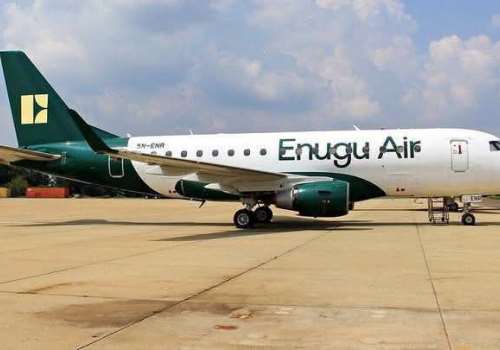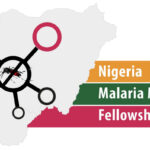The launch of Enugu Air, a state-owned airline aimed at boosting connectivity and improving economic prospects in the southeast, marked a recent epoch in Nigerian aviation.
On July 7, Governor Peter Mbah, alongside the Minister of Aviation Festus Keyamo, flagged off the airline’s operations at the Akanu Ibiam International Airport in Enugu.
The new airline debuts with three Embraer 170 jets, travelling on the high-demand Enugu–Lagos–Abuja routes via a temporary partnership with XEJet. This collaboration allows Enugu Air to begin immediate flights while hustling for its Air Operator Certificate, a process that could take up to two years.
This development positions Enugu Air as the first airline owned by a Nigerian state in the South-East, adding both commercial and symbolic weight to its launch.
Governor Mbah has hailed the airline as a strategic investment to unlock Enugu’s economy, promising jobs, increased tourism, and a boost for business travel. The airline’s partnership model lets it tap XEJet’s infrastructure while building its brand identity, and early ticket sales have already begun through XEJet’s booking channels.
In the same vein, Enugu Air fills a critical hole for commerce in the South-East. Despite being one of Nigeria’s most commercially vibrant zones, the region has often been underserved by airlines focused on busier, more profitable routes such as Lagos and Abuja.
Air travel into and out of the region is notoriously unreliable. Cancellations are rife, and airfares can vary between ₦80,000 and ₦180,000 on a one-way trip, especially during festive seasons when many Igbos typically return home.
The haphazard flight system in the southeast has inevitably hampered investment, delayed goods, and deterred tourism. Enugu Air aims to guarantee more consistent service and stabilise prices, bringing predictability to travel, which is crucial for commerce and development.
Enugu Air follows in the footsteps of Ibom Air, launched by Akwa Ibom State in 2019. Ibom Air has become one of Nigeria’s aviation success stories, flying over 60 daily routes and carrying more than 2.5 million passengers by late 2023. Much of this success is due in part to professional management and a reputation for punctuality.
Elsewhere, state-backed ventures like Imo Air and Cross River’s Cally Air have been dogged by mismanagement and political instability. The Ibom Air model shows that with professional operations and strict financial discipline, state airlines can thrive where private operators have faltered
A tough aviation climate.
Nigeria’s aviation landscape remains challenging. Jet fuel prices have soared from ₦150 per litre in 2019 to over ₦1,200 in 2025, with fuel accounting for more than 40% of airlines’ expenses.
Although more than 30 airlines have obtained licenses in the past two decades, most, like Chanchangi, Sosoliso, and ADC, have collapsed under operational costs, currency devaluation and weak management.
Even established airlines like Arik and Aero have suffered periods of grounding or restructuring. Meanwhile, infrastructure gaps persist at many airports, with poor night-landing capabilities and inadequate ground services.
To navigate these challenges, Enugu Air’s partnership with XEJet provides an important bridge, allowing it to operate quickly without waiting for full regulatory approvals.
Choosing Embraer 170 jets is another strategic decision, as these smaller aircraft are more fuel-efficient and better suited for shorter routes, helping keep costs manageable.
Governor Mbah has emphasised strict commercial discipline, promising that the airline will be run professionally without political interference.
Beyond economic benefits, Enugu Air carries strong symbolic significance for the South-East. It embodies regional pride, offering a counter-narrative to the widespread perception of marginalisation. It offers the possibility of stabilising airfares, creating jobs, and integrating the region more firmly into national and global markets.
For the Southeast’s diaspora, it could become both a practical link and a symbol of homegrown progress. Enugu Air’s future will hinge on whether it can deliver reliable service, manage costs amid Nigeria’s tough aviation climate, and remain shorn of political patronage.
If it succeeds, it could transform not just Enugu but the entire South-East region, proving that state-led initiatives can bridge the critical gaps left by the private sector.
The launch of Enugu Air, a state-owned airline, marks a significant development in Nigeria's aviation sector, aimed at enhancing connectivity and economic growth in the Southeast region. Launched by Governor Peter Mbah and Aviation Minister Festus Keyamo, the airline operates with three Embraer 170 jets on the critical Enugu–Lagos–Abuja routes, in partnership with XEJet while awaiting its Air Operator Certificate. This initiative positions Enugu Air as the first state-owned airline in Nigeria's South-East, promising job creation, increased tourism, and improved business travel.
Enugu Air fills a substantial gap in a historically underserved commercial region plagued by unreliable flights and high fares. The airline seeks to ensure consistent service and stabilize prices, which is crucial for fostering commerce and attracting investment. Enugu Air follows successful models like Ibom Air, aiming for professional management and financial discipline, avoiding pitfalls that have affected other state-backed ventures like Imo Air.
Operating in Nigeria's challenging aviation climate, where fuel costs and infrastructure issues pose difficulties, Enugu Air leverages its partnership with XEJet and strategically uses fuel-efficient Embraer 170 jets for cost-effective shorter routes. Governor Mbah stresses that the airline will operate professionally without political interference. Beyond its economic advantages, Enugu Air carries symbolic significance as a source of regional pride, challenging perceptions of marginalization and offering a bridge to the national and global markets. If successful, it could potentially transform the Southeast by demonstrating that state initiatives can effectively complement private sector efforts.






